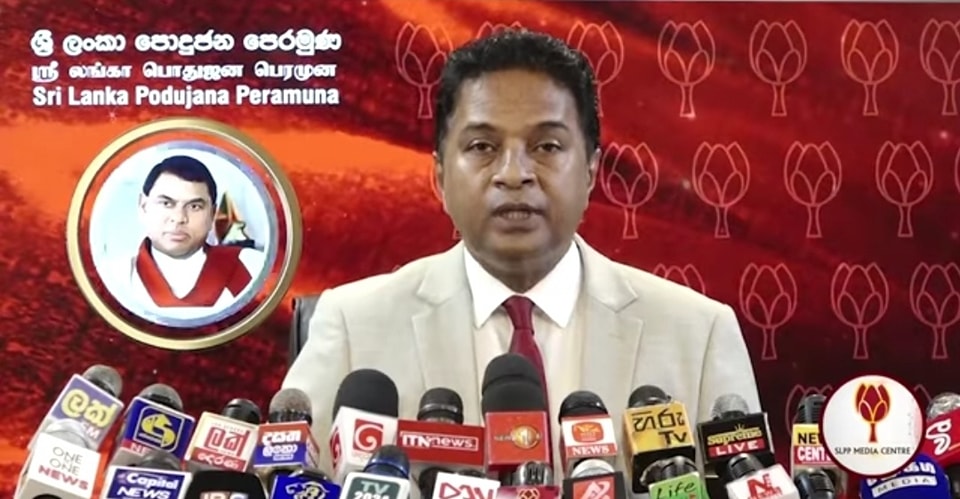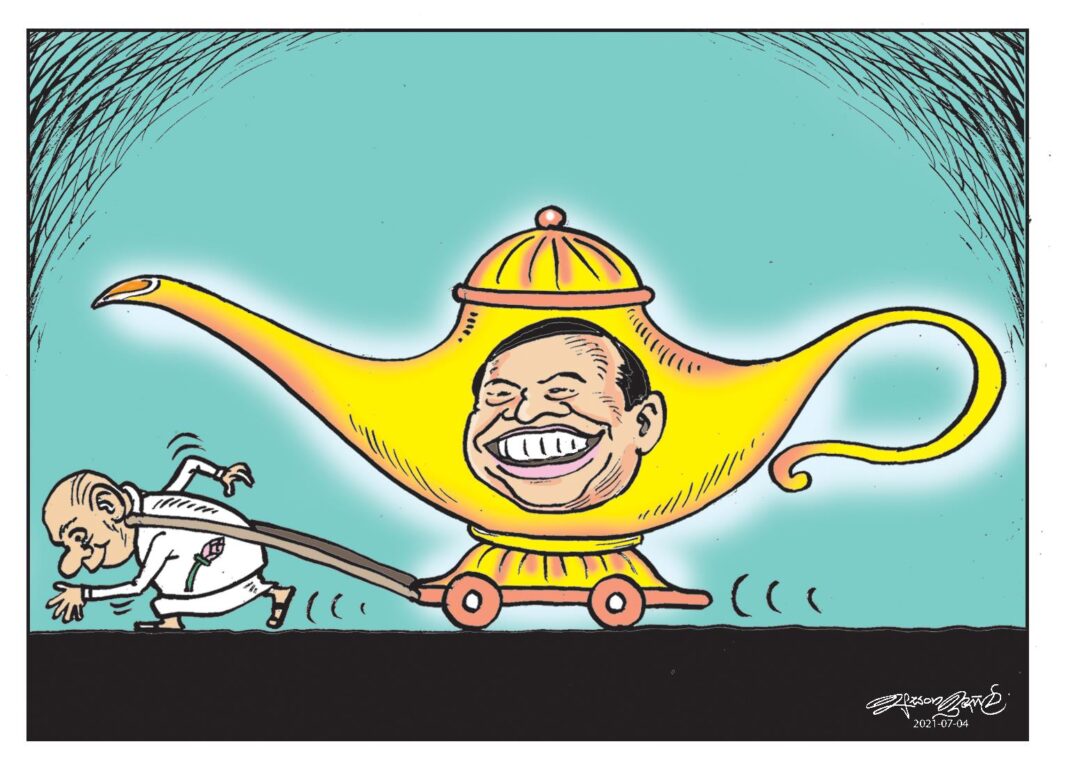Speaker Mahinda Yapa Abeywardena on Thursday named a 14-member Parliamentary Select Committee (PSC) to probe the country’s financial bankruptcy.
No sooner did he name its chairman, Sagara Kariyawasam, there was a howl of protests from the opposition. He is the General Secretary of the ruling Sri Lanka Podujana Peramuna (SLPP). He is closely associated with the party founder Basil Rajapaksa. The latter served as Minister of Finance during the economic crisis that began last year.

The other members are Pavithra Wanniaratchchi, D.V. Chanaka, Vijitha Herath, Mahindananda Aluthgamage, Eran Wickremeratne, Jayantha Ketagoda, Harshana Rajakaruna, Major Pradeep Udugoda, Sanjiva Edirimanne, Nalaka Bandara Kottegoda, Shanakiyan Rasamanickam, and Prof. Ranjith Bandara.
Here is the full text of the relevant resolution:
“And whereas it is the responsibility of the Parliament to investigate whether this economic crime was committed with a plan by Monetary Board failing to provide to the Minister in charge of the subject of Finance analytical reports with forecasts on economic indices such as the cost of living, inflation, money supply and the international balance of payment which should have been provided to him as required by sections 64(2), 65, and 68(1) of the Monetary Law Act No. 58 of 1949 or by the Cabinet of Ministers or Officers neglecting their duties;
“And whereas the country’s economic deterioration was caused due to factors such as providing tax relief, non-payment of loan instalments, imposition of import restrictions, allowing for a rapid depreciation of the rupee, the decline in official remittances from migrants, the increase in inflation to a high inflation level and the increase in the cost of living.
“This Parliament resolves that a Select Committee of Parliament be appointed to investigate and report to Parliament, and submit its proposals and recommendations on the following matters:
“(a) the fact whether the country experienced an unprecedented economic crisis as a result of those in the positions of responsibility during the times of concern failing to perform their duties properly.
“(b) the fact whether the relevant authorities took adequate measures to prevent and/or minimise the effect of the economic crisis.
(c) the fact whether there were shortcomings in the state machinery that caused it to fail to prevent and/or minimise the effect of the economic crisis;
(d) the fact whether there were other factors that contributed to such economic crisis.
(e) the fact whether there are other factors which may cause the country to undergo such economic crisis in the future; and
(f) the course of action that should be taken to minimise such economic deterioration in the future.
2. (a) that the Chair and Members of the Committee shall be appointed by the Speaker; and (b) that in terms of the provisions of Standing Order 101 of Parliament, the Committee shall not consist of more than twelve (12) Members.
3. That the Committee shall have the power to —
(a) fix its quorum;
(b) summon any person to appear before it, to require any person to procure any document or record, to procure and receive all such evidence, written or oral, as the Committee may think it necessary for the fullest consideration of the matters referred to above;
(c) obtain the services of specialists and experts in the relevant fields to assist the Committee; and
(d) make interim reports from time to time and to sit notwithstanding any adjournment or prorogation of Parliament.
4. The Committee shall present its report to Parliament within a period of three months from the first meeting of the Committee or within such further period as Parliament may grant.”
Also closely associated with Basil Rajapaksa and appointed member of the PSC is Jayantha Ketagoda. A comprehensive probe will mean that the PSC would have to hear his views too.
